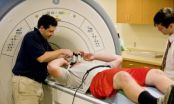(Press-News.org) PHILADELPHIA - Heart muscle cells do not normally replicate in adult tissue, but multiply with abandoned during development. This is why the loss of heart muscle after a heart attack is so dire—you can't grow enough new heart muscle to make up for the loss.
A team of researchers at the University of Pennsylvania School of Medicine describe the interconnections between three-molecules that control fetal, heart-muscle-cell proliferation in a mouse model that will help cardiologists better understand the natural repair process after heart attacks and help scientists learn how to expand cardiac stem cells for regenerative therapies.
The research team, led by Jonathan Epstein, MD, chair of the Department of Cell and Developmental Biology, and Chinmay Trivedi, MD, PhD, an Instructor in the same department, report their findings in the cover article of the most recent issue of Developmental Cell.
The Penn team showed that an enzyme called Hdac2 directly modifies a protein called Gata4, and a third protein called Hopx, which appears to have adopted a new function. Hopx is a member of a family of ancient, evolutionally conserved proteins that normally bind DNA. In this case, however, rather than binding to DNA, it works to bring two other proteins, Hdac2 and Gata4, together. By performing this unexpected matchmaker function, Hopx helps to control the rate at which heart muscle cells divide.
"Although the degree to which hearts can repair themselves after injury is controversial, if there is a natural regeneration process, even if normally insufficient and modest, then approaches leveraging this insight this could be useful for boosting new growth so that it has a clinically significant effect," says Epstein "We are eager to see if drugs like Hdac inhibitors will have this effect."
The scientists found an unexpected function for Hdac2 as well. This enzyme normally acts as a switch that regulates how DNA is packaged inside the cell, and therefore how large groups of genes are turned on and off. Epstein said that his team was surprised discover that in the developing heart this packaging role was not the critical function.
"Rather, Hdac2 seems to be working directly on other proteins, and not on DNA structure, to control replication of heart muscle cells," he says.
Hdac inhibitors are already in trials for cancer and one, valproic acid, has been used for decades to treat seizures. These inhibitors are a new class of agents that inhibit the proliferation of tumor cells in culture. Hdac inhibitors that are used to fight T cell lymphoma could possibly be used to enhance cardiac cell proliferation, say after a heart attack, when growing new heart muscle to replace damaged tissue would be is most needed.
"This could help to explain why Hdac inhibitors improve outcomes after heart attacks in animal models," says Trivedi.
INFORMATION:
3-way control of fetal heart-cell proliferation could help regenerate cardiac cells
2010-10-08
ELSE PRESS RELEASES FROM THIS DATE:
Can you analyze me now? Cell phones bring spectroscopy to the classroom
2010-10-08
CHAMPAIGN, Ill. — University of Illinois chemistry professor Alexander Scheeline wants to see high school students using their cell phones in class. Not for texting or surfing the Web, but as an analytical chemistry instrument.
Scheeline developed a method using a few basic, inexpensive supplies and a digital camera to build a spectrometer, an important basic chemistry instrument. Spectrophotometry is one of the most widely used means for identifying and quantifying materials in both physical and biological sciences.
"If we want to measure the amount of protein in ...
Technique allows researchers to examine how materials bond at the atomic level
2010-10-08
An approach pioneered by researchers at North Carolina State University gives scientists new insight into the way silicon bonds with other materials at the atomic level. This technique could lead to improved understanding of and control over bond formation at the atomic level, and opportunities for the creation of new devices and more efficient microchips.
Manufacturers build silicon-based devices from layers of different materials. Bonds – the chemical interaction between adjacent atoms – are what give materials their distinctive characteristics. "Essentially, a bond ...
Scientists trick bacteria with small molecules
2010-10-08
New Haven, Conn.—A team of Yale University scientists has engineered the cell wall of the Staphylococcus aureus bacteria, tricking it into incorporating foreign small molecules and embedding them within the cell wall.
The finding, described online in the journal ACS Chemical Biology this week, represents the first time scientists have engineered the cell wall of a pathogenic "Gram-positive" bacteria—organisms responsible not only for Staph infections but also pneumonia, strep throat and many others. The discovery could pave the way for new methods of combating the bacteria ...
Brain changes found in football players thought to be concussion-free
2010-10-08
WEST LAFAYETTE, Ind. - A study by researchers at Purdue University suggests that some high school football players suffer undiagnosed changes in brain function and continue playing even though they are impaired.
"Our key finding is a previously undiscovered category of cognitive impairment," said Thomas Talavage, an expert in functional neuroimaging who is an associate professor of biomedical engineering and electrical and computer engineering and co-director of the Purdue MRI Facility.
The findings represent a dilemma because they suggest athletes may suffer a form ...
Author who revealed unethical Guatemala syphilis study writes for Bioethics Forum
2010-10-08
(Garrison, NY) The researcher whose revelations about unethical U.S. studies on syphilis in Guatemala in the 1940's led to apologies from the Obama administration last week has written a commentary for Bioethics Forum, the Hastings Center's online publication. She calls for the need to learn from history to better protect human subjects in the developing world.
Susan M. Reverby, a professor at Wellesley College, describes how she unearthed documents about the study by accident while doing research for a book on the Tuskegee syphilis study. The documents, hidden in the ...
Notre Dame researcher helps discover 'walking' properties of bacteria
2010-10-08
Talk about a walk on the wild side: University of Notre Dame researcher Joshua Shrout is co-author of a new paper that shows that bacteria are capable of "standing up" and moving while vertical.
Shrout, assistant professor of civil engineering and geological sciences and a member of the Eck Institute for Global Health, has been studying the surface motility of bacteria since 2004. In 2008, UCLA researcher Gerard Wong suggested that an undergraduate bioengineering senior design group that he was advising track the bacterium Shrout was studying. After some interesting patterns ...
MRI zooms in on microscopic flow
2010-10-08
"Better and faster results!" is the clarion call for scientists and engineers to continually strive to improve their research tools. Of the tools used to study material structures at the atomic and molecular scales, there is none finer than Nuclear Magnetic Resonance (NMR) spectroscopy and its daughter technology Magnetic Resonance Imaging (MRI). Now, the latest development from the research group of one of the word's foremost authorities on NMR/MRI technology promises NMR/MRI results that are better and faster than ever before – a million times faster!
Through a combination ...
In Parkinson's disease, brain cells abandon mitochondria, researchers report
2010-10-08
In a study that sheds new light on the causes of Parkinson's disease, researchers report that brain cells in Parkinson's patients abandon their energy-producing machinery, the mitochondria. A shutdown in fuel can have devastating effects on brain cells, which consume roughly 20 percent of the body's energy despite making up only 2 percent of body weight.
The findings indicate that boosting the mitochondria with FDA approved drugs early on may prevent or delay the onset of Parkinson's. The study will be published in the one-year anniversary issue of the journal Science ...
Obese workers cost workplace more than insurance, absenteeism
2010-10-08
DURHAM, N.C. -- The cost of obesity among U.S. full-time employees is estimated to be $73.1 billion, according to a new study by a Duke University obesity researcher, published today in the Journal of Occupational and Environmental Medicine.
This is the first study to quantify the total value of lost job productivity as a result of health problems, which it finds is more costly than medical expenditures.
Led by Eric Finkelstein, deputy director for health services and systems research at Duke-National University of Singapore, the study quantified the per capita cost ...
Turtle, dugongs 'at risk under climate change'
2010-10-08
The "turtle and dugong capital of the world", the northern Great Barrier Reef (GBR) and Torres Strait region, faces increased pressure under climate change from human actions such as fishing, hunting, onshore development and pollution.
"Depletion of turtle and dugong numbers increases their vulnerability to other threats and lowers their ability to cope with climate change," Dr Mariana Fuentes of the ARC Centre of Excellence for Coral Reef Studies and James Cook University will tell the Coral Reef Symposium in Canberra today.
Dr Fuentes says that turtles in particular ...



